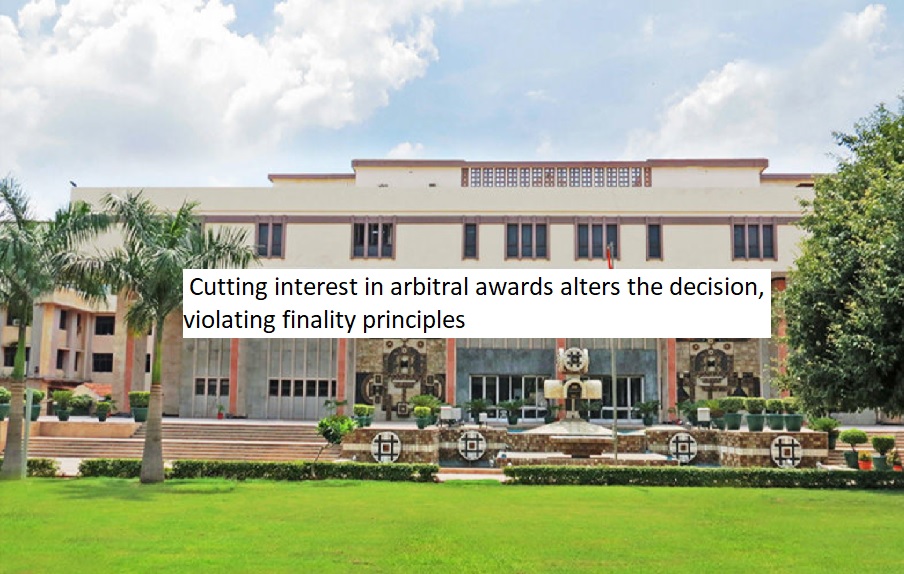


The Delhi High Court, comprising Justices Yashwant Varma and Ravinder Dudeja, has clarified a significant legal stance related to the powers under Section 34 of the Arbitration and Conciliation Act (A&C Act). The court's ruling emphasized that any attempt to diminish the interest rate determined by an arbitral tribunal through Section 34 proceedings amounts to a modification of the arbitral award, which is impermissible.
In a specific case, a Section 34 petition was initially partially allowed by a learned Single Judge on December 12, 2018. The judge, in this instance, reduced the interest rate awarded by the Arbitral Tribunal from 18% to 12% and constrained the application of interest to a specific timeframe. Importantly, no appeal was lodged against this order by the concerned party.
Subsequently, the respondent sought modification of the December 12, 2018, order, contesting the earlier disposition of the Section 34 petition. The court, admitting the modification application, proceeded to alter the award on August 8, 2019, effectively denying the claim for interest. Dissatisfied with this outcome, the appellant filed an appeal under Section 37 of the A&C Act.
The appellant challenged the assumption by the learned Single Judge that they misled the Arbitral Tribunal into granting interest at 18%. The appellant argued that the claim for interest was accepted based on unchallenged communications between the parties.
The Delhi High Court critically analyzed the sequence of events. It affirmed that once a Section 34 petition has been conclusively decided by a final order, subsequent applications seeking modification are inappropriate. The court clarified that the August 8, 2019, order couldn't be considered a review but rather a new decision reached through a fresh hearing.
The court asserted that the impugned order needed to be set aside primarily due to its impermissible nature, violating the finality of a Section 34 disposition. It underscored the legal position that once a Section 34 petition has been disposed of, the court cannot entertain applications seeking modification.
Delving into the power to modify arbitral awards, the court referred to Supreme Court principles, highlighting the distinction between setting aside an award and modifying its terms. It pointed out the statutory shift from the Arbitration Act, 1940, and emphasized that the December 12, 2018, order breached this legal framework.
The court reinforced the principles laid down by the Supreme Court, citing precedents like M. Hakeem, to emphasize the impermissibility of altering the interest rate awarded by the Arbitral Tribunal. Consequently, the court allowed the appeal, nullifying the orders of December 12, 2018, and August 8, 2019. The Section 34 petition was reinstated and remanded to the learned Single Judge for reconsideration.
In essence, the Delhi High Court's ruling reinforces the sanctity of final orders in Section 34 proceedings, prohibiting subsequent modifications that compromise the conclusiveness of the initial disposition. The judgment also underscores the limited scope of Section 34 in terms of modifying arbitral awards, aligning with established legal principles.
TAGS: Delhi High Court Section 34 Arbitration and Conciliation Act arbitral award interest rate modification impermissible